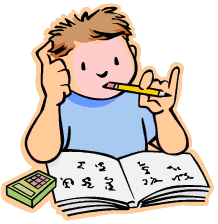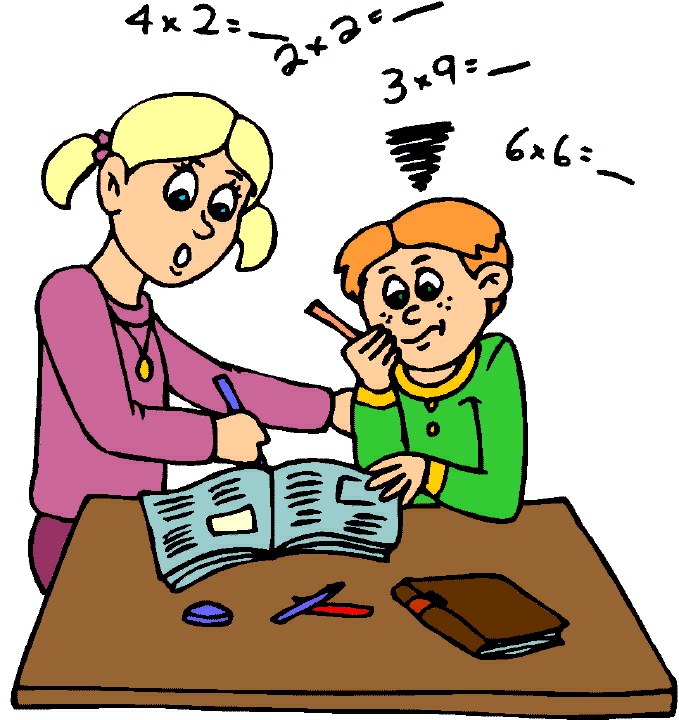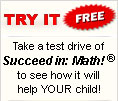Archive for the ‘What is Dyscalculia’ Category
What Are The Symptoms of Dyscalculia In Children?
 Symptoms of dyscalculia in children can vary from moderate to severe, but if you’re a parent with a child who has ANY type of learning disability, the severity of it doesn’t matter. You’ll do everything you can to help your child overcome it. It’s what we do.
Symptoms of dyscalculia in children can vary from moderate to severe, but if you’re a parent with a child who has ANY type of learning disability, the severity of it doesn’t matter. You’ll do everything you can to help your child overcome it. It’s what we do.
That being said, some of the most common signs of dyscalculia in children are listed below.
What are the Symptoms of Dyscalculia in Children?
- Anxiety when it comes to math
- Trouble differentiating between left and right
- Difficulties understanding basic math concepts, such as simple addition and subtraction
- Has trouble recognizing and remembering shapes
- Has trouble recognizing numbers, and putting them in ascending or descending order
These are just a few of the basic symptoms a child may exhibit if they have dyscalculia. Obviously they are not meant to be a defining test on whether or not your child has the learning disability, rather they’re meant to be just a starting point. If your child has any of the difficulties listed above, it is absolutely possible they struggle with math dyslexia – It is also absolutely possible your child just doesn’t like or understand math yet.
Jumping the Gun
Do not jump the gun just because your child shows the signs above. Of course, you can take precautions and help your child define and practice their math skills. There are games you can play with him or her, flash cards to practice with, and also software computer games that help your child become better at math.
Dyscalculia is a serious learning disability and if left untreated can cause unnecessary stress to your child’s future (and your mental health as their parent!) There is no cure for dyscalculia, but there are certain ways to help treat it. This website has a lot of different articles you can read, and is meant to be used as a resource.
Helping Your Child Practice
Math games are a great way to get your child to practice. The beauty of it lies within your child not knowing they are practicing math. Here is a site that has great software computer games that your child will love doing: Math game software
Dyscalculia Symptoms In Children – Signs To Look For
If you suspect your child has dyscalculia, you’ve most likely noticed some concerns of the learning disability. This article is meant to be used as a guide, and certainly NOT the deciding factor in the sole diagnosis of dyscalculia.
Dyscalculia Symptoms In Children
- Has frequent difficulty with arithmetic
- If your child has difficulty with everyday tasks, such as reading an analog clock
- The inability to understand budgeting or financial planning even at a basic level. (An example of this would be estimating the cost of the items in a shopping cart, or balancing a checkbook
- Has difficulty with subtraction-tables, addition tables,mental arithmetic multiplication-tables, division tables,etc.
- Problems with differentiating between right and left
- Inability to visualize mentally (remembering and recognizing shapes is an example)
- Often unable to grasp and remember mathematical concepts, rules, formulae, and sequences
- Inability to concentrate on mentally intensive tasks
- More Dyscalculia Symptoms
(Have your child take the online dyscalculia test here.)
While the above symptoms are not inclusive and are not meant to be a diagnosis, they are some of the big things to look for. There are many other signs your child might exhibit if they truly have dyscalculia. The best thing to do is talk to your child’s teacher and discuss what they observe during the day. If you come to conclusion that your child has dyscalculia, there are many ways to help your child overcome it. Software programs that are disguised as games can be a great way to help your child in recognizing and becoming more comfortable with math.
Tips for Helping Your Child
As a parent our children come first. Period. It breaks our hearts to even think about our children going through a difficult time. Being there for your child and understanding is the best support we can give them. Finding other ways to promote their self esteem really goes a long way. If they are really good at drawing or reading, focus on saying positive things to them, and compliment them on what they do really well. This will help to counter act some of the negative feelings they may have about their learning disability.
Helping them to feel normal will enable them to face dyscalculia head on, because they’ll feel confident in other areas of their life.
What are Some Symptoms of Dyscalculia in Kids?
If you’ve landed on this page, you’ve most likely suspected your child may have dyscalculia. If this is the case, don’t worry. Kids with dyscalculia are most often treated with the right steps and help. Not every child will have all the symptoms, and not every child will have these symptoms either. These are just a base to give yourself an idea.
Some symptoms of dyscalculia include (but are not limited to):
- Unable to write down numbers in numerical order, or unable to recognize numbers.
- Uunable to understand simple math concepts, such as odd/even numbers.
- Shape recognition (difficulty recognizing simple shapes, such as circles, triangles, and square)
 If you think your child might have the learning disability, there are things you can do. First, you may want to take this test (it will give you a clearer understanding of exactly what your child struggles with). There are books, and software, and many options available to you. A tutor may be something you might consider, or talking to your child’s teacher to see if they have any ideas.
If you think your child might have the learning disability, there are things you can do. First, you may want to take this test (it will give you a clearer understanding of exactly what your child struggles with). There are books, and software, and many options available to you. A tutor may be something you might consider, or talking to your child’s teacher to see if they have any ideas.
There are literally thousands of children a day who struggle with something in their life. It’s part of growing up. Struggling with math can effect a child’s self esteem, as can struggling with anything. Helping your child practice something is generally the best way we can show support as a parent.
Diagnosing dyscalculia for your child should definitely not be your first instinct. If you think your child has dyscalculia, look deeper. Talk to your child’s teacher, really assess what your child is having difficulty with. If it’s just normal difficulty with math, that’s nothing to worry about. If you think it is further than that and is truly a learning disability, talk to a specialist, and most importantly, talk to your child. You will find out a lot by just talking to your child.
If your child does have dyscalculia, do not worry – there are ways you can treat the learning disability and help your child overcome it. Here is a fun way to practice math your child may enjoy. It’s a printable math games collection, and it was developed specifically for kids who have difficulties with math. You can find out more about the games here.
What is the Learning Disability Dyscalculia?
Have you noticed that your child does well in every subject (for the most part!) except for math? Are you noticing difficulties when they try to solve mathematical equations, or problems? Have you searched and tried everything you can to help your child do better? Have you spoken with your childs teacher and asked them to focus on certain topics to help your child? If your child is not doing very well in math and you’re afraid they’re not getting enough help in school keep reading.
What is the Learning Disability Dyscalculia?
 Something you may not realize yet, is your child could be suffering from Dyscalculia. Dyscalculia is learning disability that causes learning problems with math, and symptoms can vary. If your child is not doing as good as they could be in math, it’s very possible they have dyscalculia. With the right help, and practice,soon your child will be doing better on their exams and grades.
Something you may not realize yet, is your child could be suffering from Dyscalculia. Dyscalculia is learning disability that causes learning problems with math, and symptoms can vary. If your child is not doing as good as they could be in math, it’s very possible they have dyscalculia. With the right help, and practice,soon your child will be doing better on their exams and grades.
Dyscalculia is not something you should take lightly. If your child is suffering from this dysfunction it is important you get them help fast. The last thing you want as a parent is for your child to experience set backs in the classroom and further on in life. Dyscalculia is not a disability that will go away on its own. Do not for one moment start to believe your child will soon outgrow it. That is not going to happen. Math anxiety will stick with them for the rest of their life, unless you do something about it right now. (You can take a quick dyscalculia test here.)
Math can be fun and it does not have to be confusing. Often in many classrooms there will be numerous children who will develop difficulties with math. The teacher is not going to delay the entire class to only help those few individuals. Your child needs help and they are not going to get it from their school. So it is going to be your job to get them that help outside of school and these tips are going to help.
Stop letting math get in the way of your child’s future. If you would like for them to begin doing better in school, now is the perfect time they start looking at math in a new easy and fun way. Let them use these fun math games to discover just how simple math really is. Your child deserves the best in everything. So let them do better in school by following these simple methods right away!
Dyscalculia Symptoms – What to Look For
Dyscalculia symptoms can range from moderate to extreme, but regardless of your child’s level of difficulties they’re having with math, it should not go left untreated. You can find a great treatment option here. Keep reading below to find out more about dyscalculia symptoms.
- Your child can not write and copy down numbers in the correct order.
- Your child has difficulties recognizing shapes, such as circles, triangles, and squares.
- Your child can not differentiate between even and odd numbers.
- Your child can not tell you the time from an analog clock.
- Your child can not understand fractions.
- Your child has anxiety when it comes to math.
There are many more symptoms that can point to dyscalculia. Just as the symptoms listed above are not meant to be the deciding factor of whether or not your child has dyscalculia. The list above is meant to be a starting point, and should be  used a guideline only. In addition, they should be age appropriate. Of course, if your child is 4 and can’t tell you the time, that would not be a clear test, since most 4 year old children have no clue how to read a clock.
used a guideline only. In addition, they should be age appropriate. Of course, if your child is 4 and can’t tell you the time, that would not be a clear test, since most 4 year old children have no clue how to read a clock.
One of the biggest ways to tell if your child may have the learning disability is just by whether or not your child has difficulty in math period. Ask your child’s teacher how your child is doing in math. If your teacher is concerned, they will most certainly tell you.
Something to remember, just because a child has difficulties with math doesn’t necessarily mean they have the learning disability either. There are tests your child can do, and treatment options to help your child overcome their difficulties with math. You can take a quick and free dyscalculia test here.
What is Dyscalculia in Children?
If you have a child that you suspect has dyscalculia (struggles with number recognition, can’t understand simple math problems, addition, subtraction, etc.), then you are likely looking for guidance on how to help him/her. I suspect that since you’re reading this article, you have questions about the learning disability, and are looking to find more answers.
What is Dyscalculia in Children?
If your child struggles with simple math problems (as listed above) your child may have what is known as dyscalculia. The learning disability includes the difficulty in understanding numbers, learning how to manipulate numbers, learning maths facts, and a number of other related symptoms (although there is no exact form of the disability).
Talk to your child’s teachers. If he or she is struggling in school, your teacher will be the first to tell you. There are certainly ways to treat dyscalculia in children, and the first step in treatment is recognizing treatment is needed. I realize this sounds very simple minded, but it’s the truth. If you’re child’s learning disability goes untreated, the results could be devastating to your child’s future.
Dyscalculia is derived from the Greek and Latin language which translates to “counting badly”. The prefix “dys” comes from Greek and means “badly”. “Calculia” comes from the Latin “calculare,” which means “to count”. The word “calculare” comes from “calculus”, which means “pebble” or one of the counters on an abacus.
The cause of dyscalculia in children is yet to be known. There have been research in many different areas, and some reasons are thought to be neurological, deficits in working memory, short term memory being disturbed or reduced, congenital or hereditary disorders.
Treatment for the learning disability can range from different options. There are many options to help your child practice number recognition and simple math problems. A fun way is by playing math games. Some people have opted to treat it by not treating it all, rather focusing their talents on other areas, such as creative abilities (this is not recommended for children with dyscalculia – if there is something that can be done to help the child overcome the learning disability, then it most certainly should not be ignored).
A great math games software to help your child with overcoming their dyslexia and math is the Success In Math Software Games. The games are played online right from the computer. You can get more information on them right here: Success In Math
If you would like to see if your child may have dyscalculia, you can visit the Dyscalculia Test Page Here.
What is Dyscalculia? An Indroduction to the Learning Disability
To put it simply, dyscalculia is dyslexia with math (or numbers). If a child is having difficulty with numbers, the chances are high he/she will have difficulty with math. Of course, this goes the other way too. If a child is having difficulty in math, it may mean they are not understanding the concept of numbers. Much research has been done on dyslexia, but dyscalculia has not gotten nearly the amount of attention.
Do you think your child might have dyscalculia? You can take a quick assessment test here.
If a child has dyscalculia and it is not addressed or worked on, the child could have a very hard time growing up, and in life in general. Having problems with numbers could lead to many different outcomes, but none of them will be easy for the child.
A child may feel inadequate, or stupid, and may give up learning all together. Numbers and math are everywhere. Without a basic understanding of them, a domino effect could ultimately destroy the child’s self esteem, which could in turn lead to dead end jobs, and a grim future of not feeling like they fit into society, or living paycheck to paycheck because they can’t get any high paying job.
We love our children and no matter what learning disability or fault they have, as parents we don’t see it. We love them unconditionally. However, unconditional love will not be able to beat a child’s broken self esteem when they feel they are less than a peer.
Children with dyscalculia are absolutely not helpless. There are many ways to overcome it, and practicing anything is certainly the best way to overcome any type of struggle. Be patient with your child, and help them practice. Show them numbers, or practice math equations with them. The biggest thing you as a parent can do to help your child is to show patience and understanding. Do not let them give up, but also do not come down on them too hard when they are slower at understanding.
If you don’t think you have the patience to deal with your child’s dyscalculia, get your child a tutor. It doesn’t make you a bad parent – it just makes you human. Do not let dyscalculia go untreated. It will only get worse, and you’re child doesn’t deserve to feel stupid.
If you’re looking for a way to help your child without spending a lot of money, you may be interested in the Making Math More Fun program. It’s a package (relatively inexpensive) that helps your child overcome dyscalculia. You can download them right to your computer and start helping your child right away.
More Info on Making Math More Fun
Math Software Games Really Help Your Child Practice
There are also math software programs you can have your child do. They’re disguised as games, so they won’t have as much pressure when they’re learning. It helps for kids who get anxiety when they’re doing math. When they don’t realize it’s math, they tend to be able to focus more and intake the information.
A great math games software is the Succeed in Math program. You can get more information on it here :
